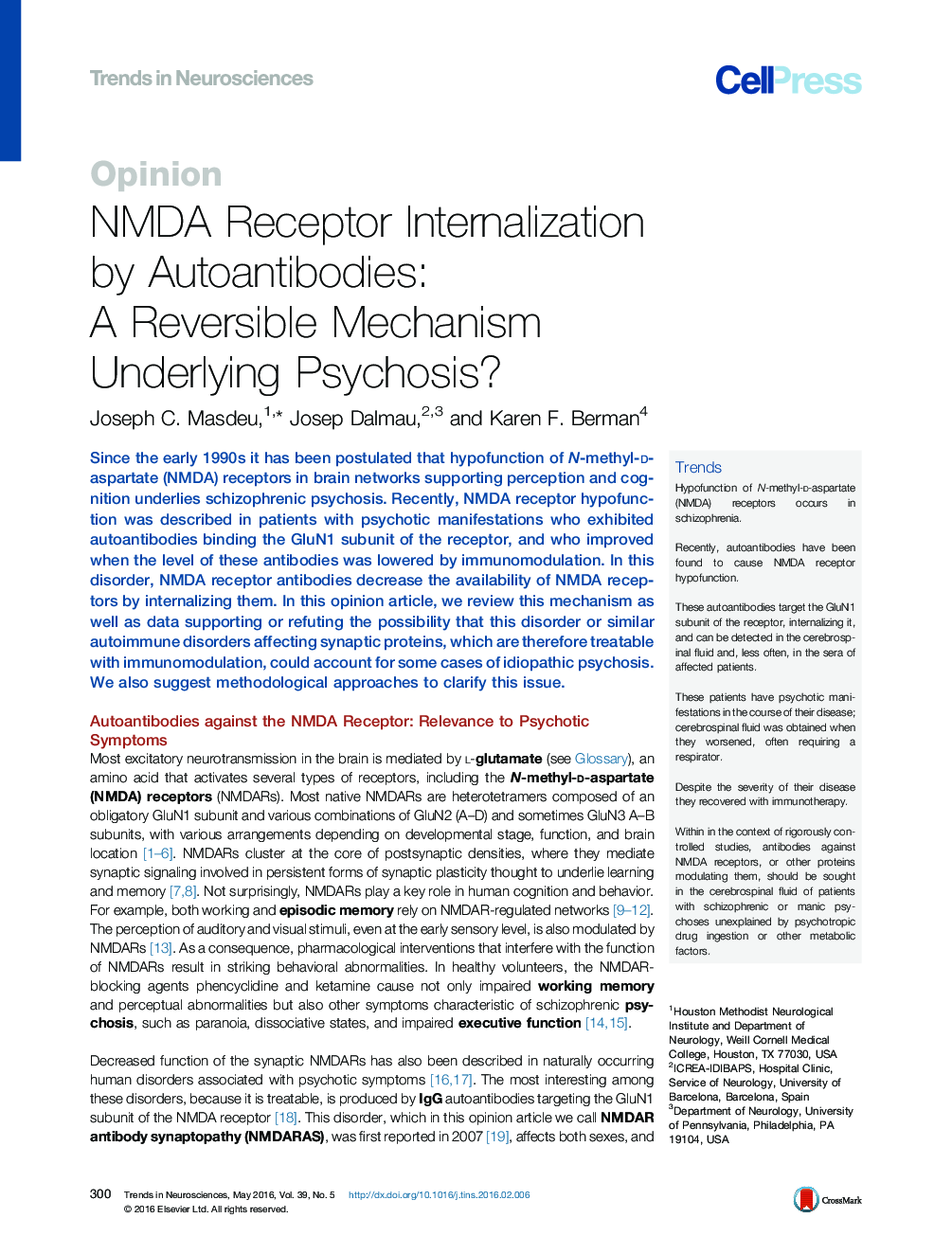| Article ID | Journal | Published Year | Pages | File Type |
|---|---|---|---|---|
| 6286656 | Trends in Neurosciences | 2016 | 11 Pages |
Abstract
Since the early 1990s it has been postulated that hypofunction of N-methyl-d-aspartate (NMDA) receptors in brain networks supporting perception and cognition underlies schizophrenic psychosis. Recently, NMDA receptor hypofunction was described in patients with psychotic manifestations who exhibited autoantibodies binding the GluN1 subunit of the receptor, and who improved when the level of these antibodies was lowered by immunomodulation. In this disorder, NMDA receptor antibodies decrease the availability of NMDA receptors by internalizing them. In this opinion article, we review this mechanism as well as data supporting or refuting the possibility that this disorder or similar autoimmune disorders affecting synaptic proteins, which are therefore treatable with immunomodulation, could account for some cases of idiopathic psychosis. We also suggest methodological approaches to clarify this issue.
Related Topics
Life Sciences
Neuroscience
Neuroscience (General)
Authors
Joseph C. Masdeu, Josep Dalmau, Karen F. Berman,
